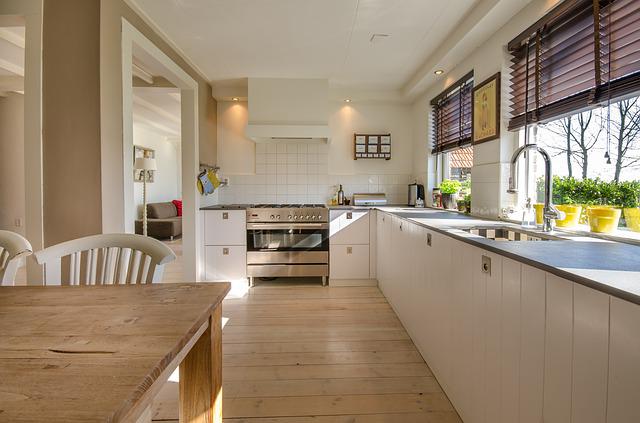Fire in the Kitchen: Is It Covered by Your Home Insurance?

While buying a property insurance policy, you must consider different risks like burglary, theft, electrical short-circuiting, etc.
Out of these, fire is one of the most common risks. The kitchen is a part of your property that is most likely to catch fire. Most of us cook in enclosed spaces, using lots of heat and electricity. So, all it would take is a small spark, and your entire house could burn down in front of your eyes.
Additionally, if your house is filled with flammable materials, an unexpected fire can spread easily if not quickly put out.
You would not want your kitchen to catch fire. Thus, it is advised that you have a backup plan. The best way to determine whether your Ontario home insurance includes coverage for an unexpected fire in the kitchen is to contract a reputable insurance broker, like Surex.
Will your property insurance policy cover unexpected kitchen fires?
You might be wondering whether your property insurance policy covers unexpected kitchen fires. Fortunately, most standard home insurance policies in Canada cover cases of a kitchen fire. However, there are certain conditions.
The fire must be unexpected
The main condition is that the fire must not be intentional. While surveying the accident, the insurance company has to declare the incident as an accident. For instance, the fire might be due to an electrical short circuit, a towel, or any other cloth unexpectedly catching fire and spreading. Simply speaking, human involvement has to be ruled out.
The kitchen must be well-maintained
Another condition that has to be met is that your kitchen should be well-maintained. A well-maintained and clean kitchen has a lower chance of catching fire than one that isn’t. So, if the fire is due to faulty wiring or a short circuit that could have been easily fixed, the insurance policy will not pay for it. Such an incident would be considered negligence on the part of the homeowner. Most insurance providers would reject such claims.
Unauthorized remodelling
Your Insurer might also reject your claim if the fire in the kitchen resulted from the remodelling of your apartment that was not allowed.
The insurer had assessed the risk while issuing the policy. The premiums and conditions were decided accordingly. Now, when you change the layout of your home, the risks can also vary.
If the remodelling has resulted in higher risk, the insurance provider can reject your claim.
The process of claiming insurance payout after an unexpected kitchen fire
It is natural to panic when you see your kitchen on fire. However, the first thing you must do is evacuate your apartment and call the fire department. Make sure all your family members are safe. You must also call 911. The sooner you contact the police and the fire department, the sooner you will get help, everyone will be safe, and the lower will be the overall loss.
Once the fire in the kitchen has been put out, you must immediately contact the insurance provider. They will first assess the accident site and calculate the extent of damage to your property. After that, they will help you file an insurance claim. The steps involved are:
- Your insurance company will also provide professionals to help clean the kitchen and other affected areas and appoint inspectors and contractors who will estimate how much the overall repairs will cost.
You can also hire an independent contractor to clear the damage and get an estimate.
- Your insurance policy will also pay for replacing all the personal items damaged or destroyed in the fire. However, there can be certain limitations.
- If your house is not safe or if you cannot live in your house during the repair work, your insurance policy will also cover any type of additional living expenses. Your insurance company will pay for any cost related if you are staying in a motel or a rented apartment during the repairs.
Once they have assessed the accident site, determined the cause of the fire, and have done the calculations, they will disburse the claim amount as mentioned in your insurance plan.
However, the insurance provider must be satisfied that the fire was an accident and not due to negligence on your part.
Which areas are covered in your property insurance to cover fire damage?
Your property insurance policy would cover most instances of fire damage to your property if it were sudden or unexpected.
Dwelling: Your policy will cover the structure of your property, like the roof, windows, and flooring, as market value coverage.
Other structures: Fire can also spread to other regions, like other structures connected to your house, such as a storage room or shed. However, your insurance policy will also cover fire damage to these structures.
Lightning: Instances like lightning or a storm can trigger a short circuit leading to a fire in your kitchen that can be costly. However, your policy will cover it.
Personal Belongings: Most people consider furniture and electronics as their personal property. However, in most cases, they do not consider clothes, gardening tools, or other equipment as their property. However, all these items are also covered by your insurance policy.
In most cases, your property insurance policy pays for all the damages caused due to the kitchen fire. The level or amount of coverage will depend on the type of insurance policy you have and the deductible you have to pay. So you need to ensure you have enough coverage and consult your insurance policy provider for more information.
Fire in kitchen spaces and home insurance — Endnote
An unexpected fire in your kitchen can be a disaster and lead to massive loss of your property and personal belongings, which might leave you in a pickle.
However, having a good insurance policy will help ease the effect, and you might not have to break the bank. So you need to work with the insurance broker to get the best home insurance policies and take whatever measures possible for fire prevention in the kitchen.
As a reminder, if you have questions about your insurance policy, reach out to a reputable online insurance broker today.






